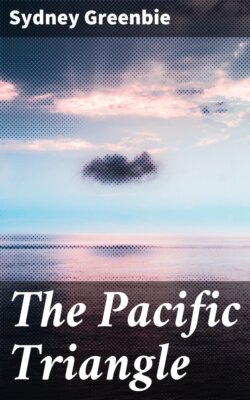Читать книгу The Pacific Triangle - Sydney Greenbie - Страница 13
На сайте Литреса книга снята с продажи.
3
ОглавлениеThe Polynesians found in the various islands they approached, during that slow, age-long migration eastward, tribes and islanders inferior to themselves. So did the Europeans in their movement westward. The primitive Caucasians remained and mixed slightly along the way, leaving here and there traces of their contact. And their ancestors in Asia forgot their exiled offspring.
With the landing of Cook at Tahiti, at Poverty Bay, at Hawaii, the counter invasion of the Pacific began. For over a hundred years now the European has been injecting his culture, his vices, his iron exactitude into the so-called primitive races. These hundred years make the second phase of civilization in the Pacific. It might have been the last. It might have meant the reunion of Caucasic peoples, their blending and their amalgamation, and the world would have lived happily ever after. But the eternal triangle plays its part in politics no less than in love, and the third period, the period of rivalry and jealousy, of suspicion and scandal, of still-born accomplishment in many fields has set in. And tragedy, which men love because it is closest to truth, is on the stage.
The third period dates largely from the discovery and the awakening of Japan. It is the blocking of the European invasion of the Pacific, and the institution of a counter move,—that of the expansion of Asia into the Pacific,—which will be treated in the last section of this book.
Photo, H. Winkelmann
IN GIANT CANOES HELIOLITHIC IMMIGRANTS ROAMED THE SOUTH SEAS
To-day, Polynesia is barely holding its own. Its sons have studied "abroad," they have been in our schools and universities, they have fought in "our" war. Rapidly they are putting aside the uncultured simplicity of adolescence. For long they treasured drifts of iron-girded flotsam which the waves in their impartiality cast upon their shores; to-day iron is supplanting thatch, and a belated iron age is reviving their imaginations, just as iron guns and leaden bullets shattered them a century ago. In the light of their astonishment, Rip Van Winkle is a crude conception; Wells has had to revise and enlarge "When the Sleeper Wakes" into "The Outline of History." No man knows what is pregnant in the Pacific; nor will the next nine eons reveal the possibilities.
